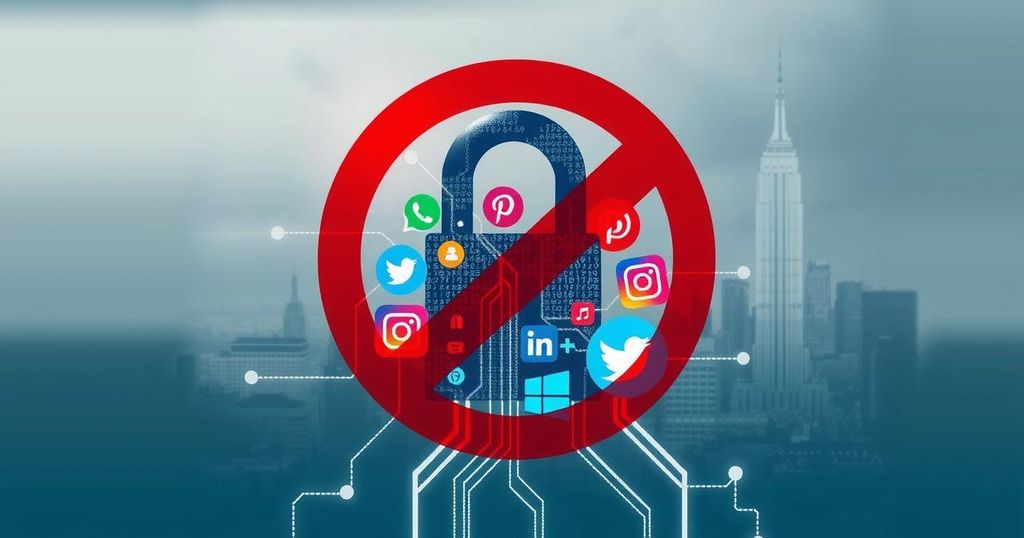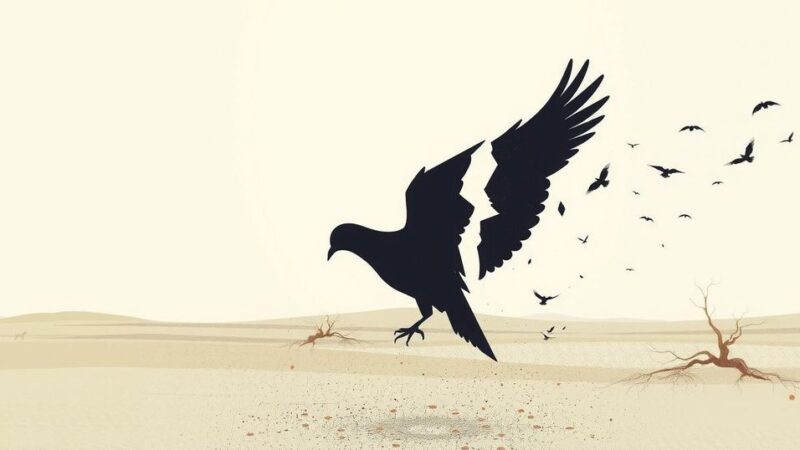South Sudan has ordered a 30-day shutdown of Facebook and TikTok due to increasing street violence linked to videos showing military actions against civilians. This decision is intended to manage unrest and ensure public safety amidst escalating tensions.
The South Sudan Communications Authority has implemented a ban on Facebook and TikTok for a duration of 30 days. This decision follows increasing violence in the streets, triggered by videos circulating online that reportedly depict Sudanese soldiers killing South Sudanese civilians in Wad Madani. This shutdown aims to mitigate unrest and restore order in the country amidst escalating tensions.
The violence in South Sudan has been exacerbated by the dissemination of graphic content online, prompting the authorities to take decisive action. The blockade on these social media platforms is an effort to prevent further incitement of violence and to stabilize the situation on the ground. Citizens have expressed concerns over the communication restrictions, emphasizing the complexities of maintaining peace while ensuring access to free expression.
The context of this incident stems from the fragile political landscape in South Sudan, which has faced numerous challenges since its independence. The ongoing conflict, coupled with humanitarian crises, continues to strain relations within the region. The government’s response to social media content highlights the sensitive nature of information flow in times of national unrest.
“South Sudan appears to be grappling with the consequences of provocative social media posts that can escalate tensions on the streets,” reports Mamer Abraham Kuot from Malakal.
The restrictions on Facebook and TikTok signal a significant step taken by the South Sudanese government to control the narrative and address public safety. As authorities navigate this complex landscape, the long-term implications on civil liberties and freedom of speech remain to be seen.
In conclusion, the temporary shutdown of Facebook and TikTok in South Sudan illustrates the government’s attempt to manage escalating violence and unrest prompted by disturbing online videos. While this move aims to foster stability, it raises important questions about the balance between security and the right to freedom of expression. The broader impact of such restrictions will demand careful monitoring and evaluation in the coming weeks.
The social media ban in South Sudan is a response to the violent unrest following alarming reports of military actions against civilians. The government’s decision mirrors a broader regional trend where authorities limit digital communication in response to civil unrest. Understanding the underlying political and social tensions in South Sudan provides context for the necessity of such measures intended to maintain order. The ongoing clashes and humanitarian crises in the region have strained relationships and trust among communities, making any provocative media particularly volatile. This environment of fragility highlights the challenges faced by governments in managing not only the security situation but also the narrative shared in the digital space.
The recent action by the South Sudanese government to shut down Facebook and TikTok for 30 days underscores the delicate balance between public safety and freedom of expression. As the authorities strive to quell violence exacerbated by social media content, the long-term ramifications on communication and civil rights in the region warrant comprehensive examination. This situation continues to evolve, and the implications for civil liberties in such contexts remain a critical discussion point.
Original Source: www.voaafrica.com







